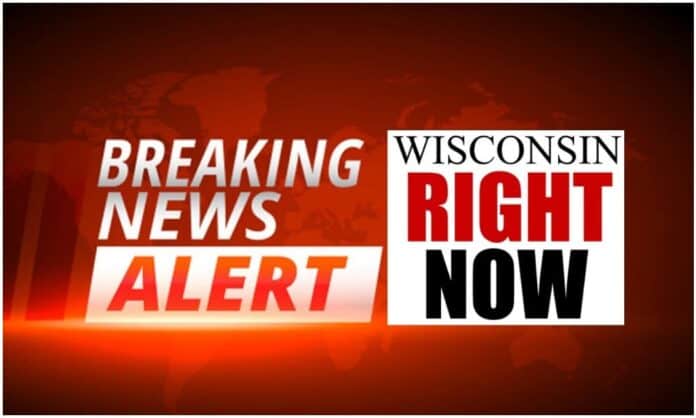“To you, he’s Mr. Vice President,” Obama quipped to a room that included more than one skeptical Republican lawmaker. “But around the White House, we call him the sheriff.”
The economy was bad, and the White House planned to go big. On the day the mammoth $800 billion Recovery Act became law, however, the new president took care to stress how his administration would keep a close eye on every dollar going out the door. This task of providing oversight, Barack Obama announced at the bill’s 2009 signing ceremony, would go to Joe Biden.
All that old sheriff has to do now is get Congress to come together – in the middle of another bitter impeachment fight. But in announcing the initiative Thursday evening, Biden didn’t mention the partisan battle currently consuming Capitol Hill. Instead, he emphasized in a prime-time speech that the dark winter he warned about during the campaign had arrived. COVID cases are spiking across the country. The economy is faltering. The nation, the president-elect argued, simply can’t afford not to act.
In a few days, the country will call him Mr. President. A decade later, Biden confronts a deeper economic crisis, this one brought on by a global pandemic, and the incoming executive has proposed a $1.9 trillion stimulus package meant to buoy families and communities and small businesses as his administration pushes to step up distribution of the coronavirus vaccines.
“The return on these investments – in jobs, in racial equity – will prevent long-term economic damage and the benefits will far surpass the costs,” Biden argued before adding that top economists had concluded that spending more now to spur the economy would ensure “our debt situation will be more stable, not less stable, if we seize this moment with vision and purpose.”
Yes, it will be expensive. Perhaps remembering the fights over the 2009 stimulus, Biden didn’t shy away from that fact. With interest rates low, he said it was a great time to borrow even though it guarantees adding more to the ever-growing national debt. Just a few minutes into his remarks, he said that “deficit spending” wasn’t just in order. It was “more urgent than ever” to make “smart fiscal investments.”
Once made safe for students and staff, Biden wants the majority of American students from kindergarten through eighth grade back in the classroom in his first 100 days. He also promised to lay out a vaccination plan “to correct course and meet our goal of 100 million shots by the end of our first 100 days.”
First, the president-elect requested $400 billion in additional funding to address the health crisis. According to his plans, the money would be spent rushing the vaccine into the arms of Americans at community vaccination sites nationwide, scaling up testing and tracing to track and contain the disease, and investing in the infrastructure and supplies needed to reopen schools safely.
Finally, the president-elect will ask Congress for an additional $440 billion to provide relief for small businesses and to shore up struggling state and city and tribal governments.
Second, Biden requested $1 trillion in family relief. The biggest item in this spending bucket: a $1,400 per-person check (a payment to be added on top of the $600 already agreed to by lawmakers). He wants housing assistance and nutrition assistance, more money for subsidized child care, an extension of unemployment insurance through September, and a $3,000 tax credit for every child under 17 years old. What’s more, the incoming president wants a $15 minimum wage: “No one working 40 hours a week should still be below the poverty line.”
He also promised emergency funding for essential workers like municipal firefighters and police, warning that “the people putting their lives at risk are the very people now at risk of losing their jobs.”
Biden proposes no less than $15 billion in direct grants as well as $175 billion in government-backed lending for small businesses. He promised that the focus would be on “Main Street,” with particular emphasis on ensuring that “minority-owned small businesses and women-owned small businesses finally having equal access to the resources they need to reopen and rebuild.”
“We didn’t get into all this overnight. We won’t get out of it overnight, and we can’t do it as a separated and divided nation,” he said. “The only way we can do it is to come together.”
Biden offered a broad sketch of the rescue package in his 25-minute address while his team passed along a 17-page fact sheet to fill in more of the details. It will be up to Congress to put flesh on these legislative bones. While Democrats hold the Senate after their twin victories in Georgia, their grasp is tenuous. The chamber splits 50-50, meaning that Vice President-elect Harris would cast tie-breaking votes. But power-sharing will still be a fact of life in the chamber and the incoming president didn’t offer details about how the ambitious agenda would become more than an aspiration. Biden wasn’t short on soaring rhetoric, however.
“House and Senate Democrats express gratitude toward and look forward to working with the President-elect on the rescue plan,” Majority Leader Chuck Schumer and House Speaker Pelosi said in a press release. The pair heralded the spending as “the right approach” and a sign that Democrats “have a partner at the White House that understands the need to take swift action to address the needs of struggling communities.” Even the party’s most prominent progressives were impressed with the dollar amount. Democratic-socialist Bernie Sanders, Biden’s 2020 campaign rival, released a statement calling the plan “much needed” and pledged to work with his colleagues in Congress to get it passed.
This, along with the outlined spending, was enough to have congressional Democrats cheering.
This sudden rediscovery of the dangers of too large a national debt harked back to the Obama days when the GOP prided itself on being the party of fiscal responsibility. Congressional Republicans regularly warned then that the Democrat in the White House was a profligate spender mortgaging the future of generations to come. It’s an old conservative chestnut that Republicans only seem to remember when Democrats occupy the Oval Office: Under President Trump, the debt ballooned by $7.8 trillion.
Republicans were predictably unimpressed. Rep. Kevin Brady, the ranking member on the House Ways and Means Committee, said Biden had “launched yet another economic blind buffalo that does nothing to save Main Street.” The Republican Study Committee, the largest GOP caucus in the House, tweeted that the stimulus checks alone in the plan “cost as much as the inflation adjusted cost of World War I.”
As the first legislative priority of his administration, the plan will test the new president’s deal-making acumen. Biden seems comfortable in the role. He didn’t balk at debt and deficits the last time he was in the White House. He hasn’t gotten skittish in the last four years either, as he heralded the first multi-billion-dollar spending package he managed. “We will be responsible with taxpayer dollars, ensuring accountability that reduces waste, fraud, or abuse,” he promised, “like we did with the Recovery Act during the Obama-Biden administration.”
Familiar with those old arguments, Biden moved to head them off Thursday evening. “I know what I just described will not come cheaply,” he said. “But failing to do so will cost us dearly – the consensus among leading economists is we simply cannot afford not to do it.” This won’t be his only spending plan either. He promised that this $1.9 trillion initiative is an opening bid to Congress with more spending to come later.
Philip Wegmann / RealClearWire
Go to Source
Reposted with permission







![Protecting Portland: No Good Deed Goes Unpunished [REVIEW]](https://www.wisconsinrightnow.com/wp-content/uploads/2025/07/portland-356x220.jpg)























